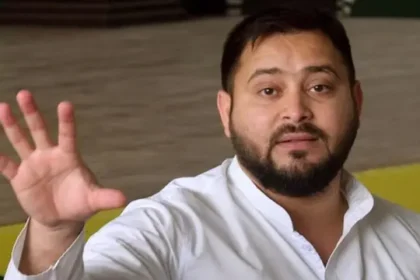Siddaramaiah Responds to Kamal Haasan’s Remarks Amid Kannada-Tamil Language Controversy
A controversy has erupted between Karnataka and Tamil Nadu after Tamil actor and politician Kamal Haasan claimed that the Kannada language originated from Tamil. The remarks, made during a public event in Chennai, have drawn sharp criticism from Karnataka Chief Minister Siddaramaiah and pro-Kannada groups, with demands for an apology escalating into a full-blown linguistic and political row.
Kamal Haasan, the founder of the Tamil Nadu-based political party Makkal Needhi Maiam (MNM), made the controversial comment during an event held weeks before the release of his upcoming film Thug Life. Addressing the audience, Haasan said, “Your language (Kannada) was born out of Tamil, so you too are included (as part of the Tamil family).” The statement was made in the presence of Kannada film star Shivarajkumar, who was also attending the event.
The remark triggered immediate backlash in Karnataka, where the Kannada language and identity are subjects of deep cultural pride. Reacting strongly, Chief Minister Siddaramaiah dismissed Haasan’s claim, calling it historically inaccurate. “Kannada has a long-standing history. Poor Kamal Haasan, he is unaware of it,” Siddaramaiah told the media. He further asserted that such comments reflect a lack of understanding about the linguistic heritage of southern India.
Siddaramaiah emphasized the importance of respecting all regional languages and called for maturity in public discourse, particularly from public figures who hold influence across linguistic and cultural lines. He said that attempts to pit languages against each other are not only divisive but also disregard the richness of India’s diverse linguistic traditions.
Echoing Siddaramaiah’s sentiment, Karnataka BJP chief Vijayendra Yediyurappa launched a scathing attack on Haasan. Taking to social media, Yediyurappa wrote, “It is the height of arrogance that an actor @ikamalhaasan who has acted in many Indian languages, including Kannada, has insulted Kannada by including actor Shivarajkumar in the glorification of his Tamil language.” He demanded an immediate apology from Haasan, stating that artists must have the grace to respect all languages equally.
Yediyurappa further criticized Haasan for forgetting the support and generosity extended to him by the people of Karnataka throughout his acting career. “Kamal Haasan is not a historian to determine the origins of Indian languages,” he said. “Such comments are not only offensive but are also historically unfounded.”
The linguistic controversy has also drawn the ire of pro-Kannada activists. Praveen Shetty, the leader of Karnataka Rakshana Vedike—a prominent Kannada advocacy group—threatened to launch protests and even ban Thug Life in Karnataka if Kamal Haasan continues to make remarks that are seen as disrespectful to the Kannada language and culture. “If he talks against Kannada again, we will not allow his films to release here,” Shetty said.
The controversy comes at a sensitive time, as issues of language identity and cultural pride have become politically charged in many parts of India. The Indian Constitution recognizes 22 scheduled languages, and while linguistic diversity is celebrated, it often becomes a flashpoint for regional tensions.
Linguistic experts have also weighed in on the issue, with several scholars pointing out that while Tamil and Kannada share a Dravidian linguistic root, they evolved independently over centuries. “Both Tamil and Kannada are classical languages with rich literary traditions. Statements suggesting one language is the progenitor of another are misleading and historically simplistic,” said a professor of linguistics from Bangalore University.
Kamal Haasan has yet to officially respond to the backlash. As the release date of Thug Life—June 5—approaches, the controversy threatens to overshadow the film’s promotions in Karnataka. Analysts suggest that Haasan, who has political ambitions in Tamil Nadu, may face further resistance in neighboring states if such controversies persist.
This incident is not the first time language has been at the center of a public dispute in South India. In the past, there have been debates over the imposition of Hindi, language preference in public administration, and regional pride linked to linguistic heritage. However, this controversy is unique in its timing and the stature of the personalities involved.
In an age where public statements by celebrities and politicians are instantly amplified on social media, the importance of cultural sensitivity and historical accuracy becomes all the more crucial. The Siddaramaiah-Haasan exchange is a reminder that language in India is not just a means of communication but a profound marker of identity, pride, and regional legacy.
As calls for clarification and apology grow louder, the ball is now in Kamal Haasan’s court to address the issue responsibly and prevent further escalation. With multiple political parties united in their condemnation of the comment, the controversy may have longer-term implications on his political outreach beyond Tamil Nadu.
Also Read : Cyclone Shakhti Triggers IMD Orange and Red Alerts for Goa and Maharashtra Amid Severe Rainfall Warning







